1918, exiting from the war
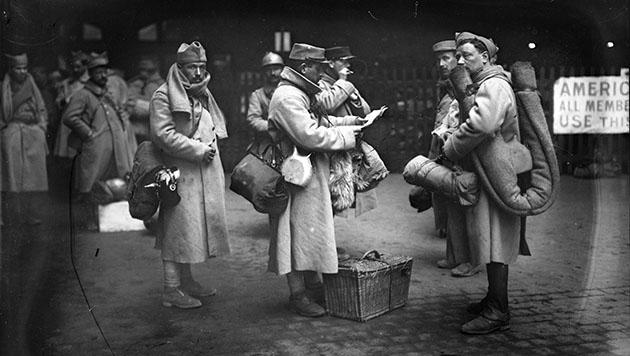
Contents
11 November: Armistice signed at Rethondes, in the forest of Compiègne, putting an end to the hostilities of the First World War on the Western Front for a period of 36 days.
20 November: In France, Georges Clemenceau becomes Minister of War.
9 December: Armistice of Focşani between the Central Powers and Romania.
13 December: Prolongation of the armistice by the Allies.
15 December: Russo-German armistice of Brest-Litovsk.
1 January: Independence of Byelorussia, which becomes a Soviet Socialist Republic.
5 January: Vilnius is taken by the Red Army.
5-16 January: Spartacist Uprising crushed in Berlin (execution of Karl Liebknecht and Rosa Luxemburg on the 15th).
16 December: Further prolongation of the armistice by the Allies.
17 January: Paul Deschanel is elected French President.
18 January: The Paris Peace Conference opens at the Quai d’Orsay, chaired by Georges Clemenceau.
19 January: A constituent assembly is elected in Germany.
21 June: Start of the Irish War of Independence.
26 January: General election in Poland.
5 February: Kiev is recaptured by the Bolsheviks.
11 February: Friedrich Ebert is elected German President by the Weimar National Assembly.
14 February: Battle of Bereza Kartuska, in Belarus, marks the start of the Polish-Soviet War.
16 February: Final prolongation of the armistice by the Allies before the signing of the peace treaty.
27 February: Proclamation of the Lithuanian-Byelorussian Soviet Socialist Republic.
2 March: The Third International is founded in Moscow.
3 March: General strike in Germany.
4-13 March: General strike put down in Berlin.
10 March: Proclamation of the Ukrainian Soviet Republic.
21 March: Proclamation of the Republic of Councils in Hungary, or Hungarian Soviet Republic.
22 March: In France, a law is passed introducing demobilisation benefit.
23 March: In Milan, the Fasci Italiani di Combattimento (Italian Combat Leagues) are founded by Benito Mussolini.
25 March: France adopts collective employment agreements.
29 March: In France, Raoul Villain, Jean Jaurès’s murderer, is acquitted.
31 March: France passes a law introducing compensation for veterans and victims of war.
2-6 April: French troops are evacuated from the port of Odessa.
7 April: Attempted Communist revolution in Bavaria.
15-16 April: Start of the Hungarian-Romanian War.
17 April: France passes a law giving individuals the right to compensation for damage caused to property during the war.
19 April: France adopts a charter for war victims.
19-21 April: Mutiny of French seamen in the Black Sea fleet.
21 April: Polish troops enter Vilnius. End of the Lithuanian-Byelorussian Soviet Socialist Republic.
23 April: In France, a law is passed introducing an eight-hour day and 48-hour working week. Army and paramilitaries enter Bavaria to crush the uprising.
1 May: Workers demonstrate in Paris. Czech offensive in Hungary.
1-8 May: Munich is taken by the army and paramilitaries. End of the Bavarian Soviet Republic.
7 May: As part of the Treaty of Versailles, a Franco-Anglo-American pact is signed to guard against German aggression.
12 May: The German national constituent assembly rejects the proposed treaty submitted to the German delegation.
21 May: The French Chamber of Deputies votes a bill giving women the right to vote; it is rejected by the Senate.
10-13 June: French metalworkers go on strike.
12-13 June: Hungarian Communist Party congress.
16 June: The Allies present Germany with an ultimatum. The Slovak Republic of Councils is proclaimed.
19-23 June: Decisive victory for Estonia and Latvia over the pro-German Baltic government at the Battle of Wenden.
22-23 June: The Treaty of Versailles is accepted by the Weimar National Assembly.
24 June: France passes a law governing the compensation to be awarded to civilian victims of the war. Attempted counter-revolutionary putsch in Budapest fails.
25 June: Transport strike in Paris.
28 June: The Treaty of Versailles is signed with Germany, including in its preamble the Covenant of the League of Nations.
2 July-September: Rail workers strike in Portugal.
7 July: The Czech army puts an end to the Slovak Republic of Councils.
11 July: Eastern Galicia a Polish protectorate after the Paris Conference.
14 July: Victory parade in the Champs-Élysées.
20 July: Hungarian Red Army offensive against Romania (Red Army defeated on the 24th).
31 July: The French General Employers Confederation is founded.
1 August: Government of the Republic of Councils in Hungary resigns and a socialist government is formed.
3 August: Budapest is occupied by Romanian troops.
6 August: The Republic of Councils in Hungary falls and a counter-revolutionary government is formed. Start of the White Terror in Hungary (1919-1920).
8 August: Minsk falls into Polish hands.
11 August: Promulgation of the Weimar Constitution at Schwarzburg.
14 August: Promulgation of the Bamberg Constitution by Bavaria.
16-17 August: Start of the uprising of the Polish people against the German authorities in Upper Silesia.
19 August: A state of siege is proclaimed in Upper Silesia.
20 August: Start of the Battle of Tobolsk-Petropavlovsk between the Red and White armies in Siberia.
23-28 August: Sejny Uprising; withdrawal of Lithuanian troops.
24 August: The uprising in Upper Silesia is put down by paramilitaries.
Start of the peasant movements in Italy (land occupation).
7 and 12 September: Decree-laws introducing agrarian reform in Romania.
10 September: Treaty of Saint-Germain-en-Laye with Austria.
12 September: Adolf Hitler speaks at a meeting of the German Workers’ Party at a bierkeller in Munich.
28 September: Polish-Soviet War; start of the Battle of Daugavpils.
9 October: First conference of the Fasci di Combattimento, in Florence.
10 October: Economic blockade of Soviet Russia by the Allied Supreme Council.
14 October: In France, a decree of general demobilisation annuls the decree of mobilisation of 1 August 1914.
26 October: The Red Army defeats the White Army in Siberia after the Battle of Tobolsk-Petropavlovsk.
2 November: In France, on the first All Souls’ Day since the return of peace, ceremonies are held at cemeteries all along the front. The French Confederation of Christian Workers (CFTC) is founded.
11 November: First day to commemorate the 1918 armistice, with a single ceremony being held in the chapel of Les Invalides, attended by Marshal Foch.
16 November: In France, the Bloc National wins a majority in the general election, marking the start of the “horizon-blue chamber” (in reference to the large number of WWI veterans who were elected).
20 November: The US senate refuses to ratify the treaties, leading to the United States’ absence from the League of Nations.
22 November: Károly Huszár comes to power in Hungary.
27 November: Treaty of Neuilly with Bulgaria.
8 December: The Curzon Line is proposed by the Allied Supreme Council as the border between Poland and Lithuania, with the city of Vilnius ascribed to Lithuania. The Curzon Line is rejected by the Poles, who advance as far as Kiev.
9 December: The Kingdom of Romania signs a minority treaty in Paris, at the close of the Paris Peace Conference.
12 December: The Red Army recaptures Kharkov from the nationalists, followed by Kiev on the 16th, then takes Ekaterinoslav and occupies the whole of southern Ukraine.
5 January: The Red Army is driven out of Daugavpils by Polish-Latvian troops.
10 January: Entry into force of the Treaty of Versailles.
17 January: Paul Deschanel succeeds Raymond Poincaré as French President.
18 January: In France, Georges Clemenceau resigns as prime minister after being defeated in the presidential election.
20 January: In France, Alexandre Millerand becomes prime minister; war pensions ministry created, with André Maginot as minister.
24 January: In France, the Reparations Commission is established.
18 February: Germany is restricted to a standing army of 100 000 men by the Supreme Council.
23 February: In France, Raymond Poincaré is appointed chairman of the Reparations Commission.
25-29 February: 17th national conference of the French Section of the Workers’ International (SFIO) is held in Strasbourg.
February-May: In France, waves of strikes by the miners and railway workers.
24-25 May: Second conference of the Fasci de Combattimento is held in Milan.
4 June : Treaty of Trianon with Hungary.
In Italy, revolt of the bersaglieri (light infantry unit).
5-16 July: Spa Conference on war reparations.
10 August: Treaty of Sèvres with Turkey.
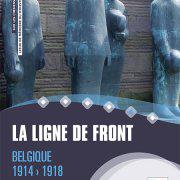
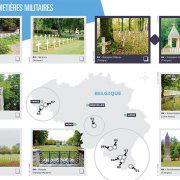
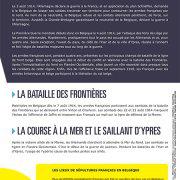

Summary
DATE : 11 November 1918
PLACE : Clairière de Rethondes, in the forest of Compiègne
OUTCOME : The signing of the Armistice bringing the fighting of the First World War to an end
PARTICIPATING NATIONS : France, Britain and Germany
The Armistice of 11 November 1918 was the catalyst for a complex period during which the withdrawal of four million soldiers was enacted. The first phase consisted of demobilising the troops, in other words organise their repatriation home. For many, above all soldiers sent from the colonies, demobilisation did not take place until late in 1919.
The period of demobilisation that came in the wake of the First World War was exceptional not only because it was on a scale never seen before but also owing to the diverse backgrounds of those affected, a mixture of those born and bred in mainland France, others from overseas France, i.e. the former colonies, but also men and women recruited to work for the war effort.
From the moment the armistice was declared, four million mobilised troops in the French army (including around 300,000 soldiers from the former colonies) were given the prospect of returning home, an unquestionable source of joy for soldiers and their families alike. The government was well aware of their hopes. Yet it also had a duty to maintain a strong army until the signing of the final peace treaty imposed on a defeated Germany, an act that did not happen until 28 June 1919 in the form of the Treaty of Versailles. Caution was also paramount due to other international concerns going on at that time (in central and eastern Europe, Russia and the Levant).
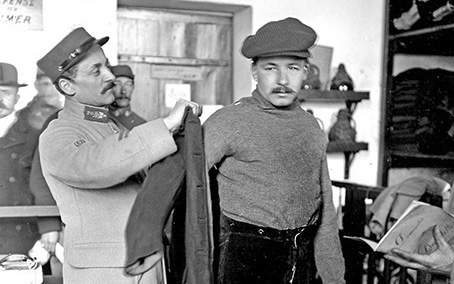
A demobilised soldier trying on the national suit, nicknamed the "Abrami", Paris, École militaire, 13 February 1919.
© © Joly/ECPAD/Défense
ORGANISATION OF THE DEMOBILISATION
The act of sending the soldiers back to civilian life was carried out in stages with priority afforded to the most senior. From late November, the oldest men (between 49 and 51) were permitted to go home. This was followed by the return of men aged 32 to 48 between December and April. Circumstances changed when the Allied leaders became alarmed at Germany’s reticence to accept the terms of the armistice, which it deemed too harsh, and started to consider military intervention with the explicit intention of forcing the defeated nation into submission.
The demobilisation process was therefore put on hold. The classes comprising the active reserve forces, i.e. soldiers under 32, were kept in service until July 1919. While more than a million soldiers were demobilised by this time, the French army still had a further 2.5 million men in its troops compared to just over four million on 11 November 1918. Demobilisation was then resumed and carried out in four stages through to September. It wasn’t until 14 October 1919 that the general decree of demobilisation was signed, cancelling out the sadly famous mobilisation decree of 1 August 1914. The return of those originating from the colonies was carried out along the same lines. However, for many of them who enlisted for the duration of the war, their contracts stipulated that demobilisation was not an option until six months from the end of hostilities, which meant the month of May 1919 at the earliest, taking the armistice as the base date. In September 1919, about 15,000 indigenous troops remained in France including 13,000 Indochinese soldiers, above all Vietnamese, nurses and drivers for the most part. They returned to their native countries between September and November.
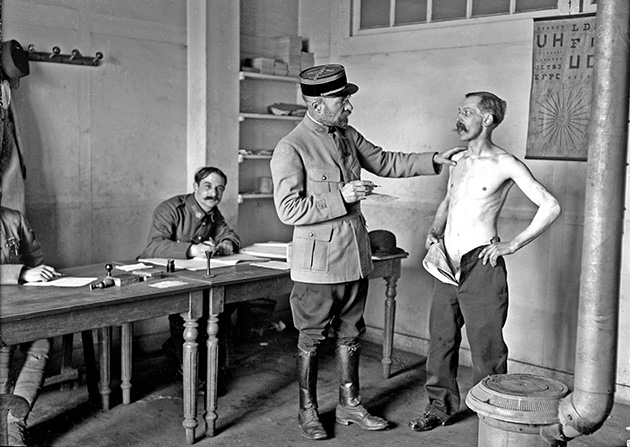
A demobilised soldier is given a medical inspection, Paris, École militaire, 13 February, 1919
© © Joly/ECPAD/Défense
The staggered return was rarely appreciated by those affected, even if it did give some of them the chance to attend the parade on 14 July 1919 through the Arc de Triomphe. It brought disarray to the formation of the units which had to be reorganised to factor in the demobilised troops. Furthermore, there was a lapse in discipline with soldiers and citizens feeling that the end of the German threat no longer justified the application of rules and regulations to which the large majority were subjected in silent revolt and which they strongly resented. For the demobilised, quitting the army brought its own set of problems. The procedure itself was simple: having a medical inspection, updating one’s military papers, then being sent to the demobilisation centre which was the holding place for the regiment to which each demobilised soldier belonged. But there was frequent chaos, especially as concerned the trains: the soldiers, to protest against the slow convoys and the uncomfortable carriages, frequently smashed windows and doors. Demonstrations were held by the Senegalese riflemen from the Saint-Raphaël Camp who, during a review, jostled a general and noisily demanded their return. When you factor in the lack of marine transportation, the repatriation of overseas soldiers was even further problematic.
QUITTING THE ARMY, RETURNING HOME
For the first to leave, returning home meant facing disappointment. The demobilised men were treated quite indifferently by the authorities and there was no ceremony of any sort welcoming them back. To replace the clothes left behind in the barracks, abandoned or unwearable, they received nothing but an ill fitted suit (called an Abrami after the Under-Secretary of State for War Léon Abrami) or, if they refused it, the paltry sum of 52 francs, equivalent to about 50 euros in today’s money. They were even summoned by the tax office to pay their back taxes, since the moratorium was lifted at the end of the hostilities. It was only in March 1919 that more comprehensive measures were introduced to compensate for the earlier gaffes: the tax moratorium was reinstated; a demobilisation bonus was paid, calculated on a fairer basis (250 francs plus 20 francs for each month stationed on the front), and a law on pensions paid to war invalids or families of men killed in action was passed. The welcome home was also changed.
From the signing of the Treaty of Versailles, the regiments who returned to their home town were now celebrated: festivities commenced with a parade of the troops, cheered on by crowds of compatriots, in streets bedecked in decorations and foliage. The celebrations were especially emotional for many of them in the procession who, despite mixing with other regiments during the course of the conflict, were still sons of the soil. The parade was sometimes, though not always, followed by various other festivities, including concerts, balls, fireworks or torch-lit processions. Even when the festivities took place, nothing could hide the obvious grief that would ensue for years to come for the walking wounded and the widows and families whose black mourning wear was a constant reminder of all those who would never return home.
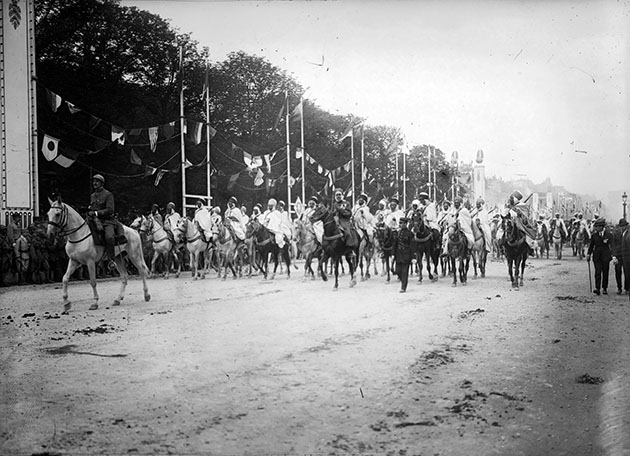
Spahis in parade at the victory celebration in Paris, 14 July 1919
© © Albert Harlingue/Roger-Viollet
The demobilised troops also had to make huge efforts to readapt. They had lived, for several years, five in some cases, amongst their fellow troops, far away from home, and cut off from civilian life with the exception of rare periods of leave. They first had to find a job, which was not always easy. Despite the passing of a law in 1918 obliging business owners to rehire their former workers or employees, not all of these owners were still in business or in a position to take on staff. They were also forced to carry out a series of formalities, which were time-consuming and often humiliating, to obtain the benefits to which they were, by rights, entitled. But finding work was not their only problem. The liberated man, whose daily routine up until that point had been governed by the army, had forgotten how to live an ordinary life, meet their individual needs and know how to feed and dress themselves. More especially, family life had to be reorganised, with wives who, whether they liked it or not, had taken on the responsibilities in their capacity as the new head of the household and children who had lost many years with their father, if they had ever known him at all. Couples separated and divorces were more common than before the war.
The demobilised also felt that they had nobody with whom to share their personal experiences since the people they’d left behind could not even begin to imagine the suffering, fears and solidarity they had shared with their brothers in arms. A portion of the six and a half million veterans (about one adult male in two) did find an association in which they could express their sense solidarity and grievances in French society. Their main state of mind was a feeling of pride of surviving such an ordeal and clinging to their positions, as they did in Verdun, to stop masses of German troops spilling across the country. They felt infinitely more a sense of satisfaction from fulfilling their duty than the exhilaration of the daring exploit of war, even if not everyone was entirely indifferent to it. The further the war receded into the past, the stronger the sense of peaceful, and even pacifist, patriotism grew in the majority of the troops, marked above all by a condemnation of the war and a rejection of anything that might facilitate it, most notably militarism, the excitement of daring heroism and even, in some extreme cases, the honour of choosing death over servitude.
WHAT FUTURE FOR THE OTHERS “MOBILISED” FOR WAR?
Other categories of soldier were also affected by the end of the war. French prisoners, whose number is estimated in the region of 500,000, were able to leave their camp as soon as the armistice was signed. Many took the initiative to return home by their own means, not without difficulty. The French authorities took responsibility for the repatriation of all others. It took two months, from mid-November 1918 to mid-January 1919, to complete the majority of returns. Those that did return had to deal with the indifferent attitude of the authorities and public opinion, as if these veterans were somehow tainted with dishonour when most of them had no reason to shoulder any blame, The law also assimilated them with the other veterans for the compensation owed to them.
Just as discreet, perhaps understandably so, was the demobilisation of men from Alsace and Lorraine from the territories annexed to the Reich since 1871, who had served in the imperial army (250,000 of them during the war). In an attempt to counter the lack of understanding and the injustices born of their situation as Frenchmen having served in an enemy army, a first association was set up in 1920 under the patronage of the great patriotic writer Maurice Barrès, and explicitly named ‘malgré-nous’ (against our will), which was once again used following the even more tragic circumstances that unfolded during the Second World War.
Further neglected still was the demobilisation of a small number of women, conscripted into the war to carry out work until then largely attributed to men in industry and services. They were forced to quit their jobs and return to being housewives or domestic workers under pressure from the authorities (the minister of armaments Louis Loucheur issued a circular to this effect on 13 November 1918). The transfer of these women was done with little noise and left few traces behind.
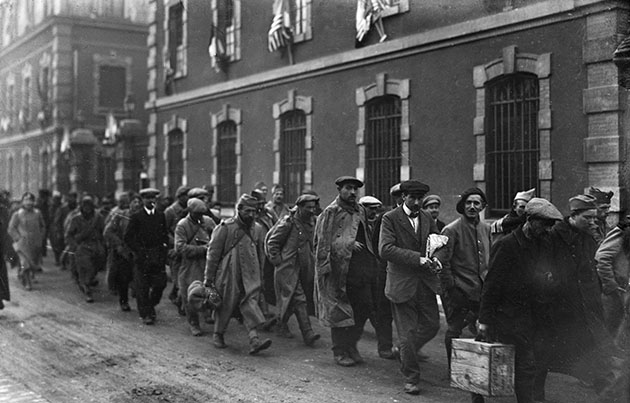
French prisoners repatriated from Germany, November 1918
© © Maurice-Louis Branger/Roger-Viollet
TO CHALLENGE OR MAINTAIN THE COLONIAL ORDER?
The return of demobilised troops from the colonies was often marked by some form of ceremonious wecome. In a speech delivered in Algiers, General Nivelle, who had come to welcome the riflemen and Zouaves returning to their garrisons, praised "their heroism, their spirit of sacrifice and their unconquerable faith, in Marne, Ypres, on the Somme, in Aisnes, in Verdun, and in Château-Thierry, in Champagne". He reminded them that he had always stationed them at posts of honour. This greeting was addressed above all, admittedly, to only the first repatriated contingents while those that followed were welcomed with far greater indifference. In certain cases, the authorities seemed to take an interest in planning the readaptation of troops. One brochure handed out to demobilised troops from Indochina explained the formal procedures to follow to ensure they received the benefits to which they were entitled. They were given a medical inspection and any injured or sick were treated in medical facilities.
This outpouring of solicitude did not mean a total disregard of surveillance. In Indochina, one regiment of repatriates, established in September 1917, was instructed to centralise information on the indigenous troops in mainland France, so as to report any potential problems, but also any sign of divergences in individual behaviour, which was then passed on to the local security services. In some regions, incidents occurred in response to returning troops. In Djibouti, in the spring of 1919, demobilised troops, some of whom earned a name for themselves in battle (in particular during the liberation of Douaumont in October 1916) mutinied. Some who returned to their camps set about looting the place. Incidents broke out in town. Other similar disturbances happened in French West Africa (AOF), especially in Senegal and Guinea. None of these incidents deteriorated into serious trouble. Workers recruited in the colonies to support the war effort (whose number is estimated at 200,000) also returned to their home country in their masses. The authorities had no desire to keep them in France. They feared these workers had been corrupted by revolutionary ideas which seemed to be gaining ground amongst the French proletariat. They felt that sending them back was an opportunity to give popularity-seeking satisfaction to popular discontent, at a time when troops returning from the front were still seeking employment. Managers in the colonies wanted to reinstate all of the “indigenous” manpower, vital for ensuring the economic recovery in overseas France while receiving wages pushed down to the lowest level by pressure from the returnees. To meet the needs for rebuilding France, there was a general preference for calling on people originating from Europe, deemed more efficient and more accepting by the trade unions owing to their working class tradition. A small number of colonial and Chinese workers were employed to work on the first sites established to clear rubble from the front, in conditions that were often punishing and dangerous. The return journey of demobilised troops was in principle paid by the state, but the administration was in no rush to honour its obligations. The last Vietnamese returnees did not make it home until July 1920.
As their comrades in mainland France, veterans, be they European or indigenous, expressed little the realities of war. Some tended to attribute the attitude of these troops to a “fatalism” that rendered them indifferent to the most momentous events and not to the need to forget that was very common amongst veterans. Back home, these same indigenous citizens were just as ready to challenge the pre-war order and the order imposed by the colonial authorities not to mention the order of traditional societies. They were not prepared to submit to their civic leaders or their elders.
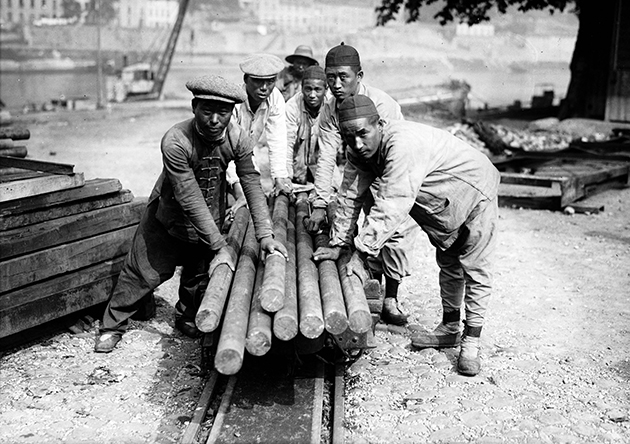
Chinese workers in a munitions factory, Lyon region, September 1916.
© © Piston/Excelsior-L’Équipe/Roger-Viollet
They relied on their status as veterans in the French army to try to avoid the orders imposed by the administration. In AOF, business owners criticised the arrogant attitude of demobilised troops and accused them of picking up lazy habits while in service that was driving them to delinquency. However, many were enjoying, amidst the general population, the consideration shown to them owing to their apparent command of “white manners”: they smoked tobacco, knew a smattering of French and could show official “papers”. Their military actions were admired in a society in which the combatant was held in high esteem. Their demobilisation bonus, paid in one go and often spent on gifts, also gave them, at least in the beginning, a certain prestige in parts of the country forced into a frugal existence.
Furthermore, some repatriates acquired from their time in Europe a new political conscience and new ideas for action. One former soldier, Dorothée Lima, founded in 1920 the first newspaper in Dahomey, La Voix du Dahomey. One returnee worker from France, Tôn Duc Thang, who may have participated in the Black Sea mutinies, created the first trade union in Saigon. For others, a spell in the army confirmed a political vocation, such as Jean Ralaimongo, a teacher who was voluntarily conscripted at the age of 32 and went on to become one of the first leaders of the Madagascan emancipation movement, or accountant Galandou Diouf who soon became the rival of Senegalese political leader Blaise Diagne. We might wonder if this type of behaviour was frequent amongst the former combatants. In fact, most of them returned home with a desire to enjoy a peaceful life and the benefits extended to them by the government and the respect of their loved ones.
Veterans and former soldiers of European origin, especially the French in Algeria, had a different attitude. While their mentality might seem not so dissimilar to their compatriots in mainland France, the colonial context brought a slight nuance to their patriotism. Their war experience, the brotherhood of arms that forged links between many of them and indigenous soldiers, the countless examples of heroism and devotion shown by these troops, seemed to plead in favour of maintaining a colonial order that produced impeccable conduct. Their very positive opinion on their former comrades in battle took scant consideration of the often tough living conditions the latter would return to in civilian life or their aspirations to escape the condition of “subjects”. While feeling more affection and respect towards the indigenous troops than in the past, those who were yet to be known as the “Pieds noirs” were scarcely more prepared to listen to the demands of their representatives. These exaggeratedly optimistic sentiments were further reinforced by the exemplary participation of the soldiers from the colonies during the Second World War.
Overall, demobilisation might appear to have been successful: the soldiers made a seamless integration into civilian life. Veterans in mainland France continued to express their loyalty to the Republic, which seemed to have come out of the war stronger. But their expectations were commensurate with the sacrifices they had made: a happier life, a more attentive government. As for the men enlisted from the colonies, the pride of having been good soldiers nurtured a claim for dignity that would fuel aspirations of independence.
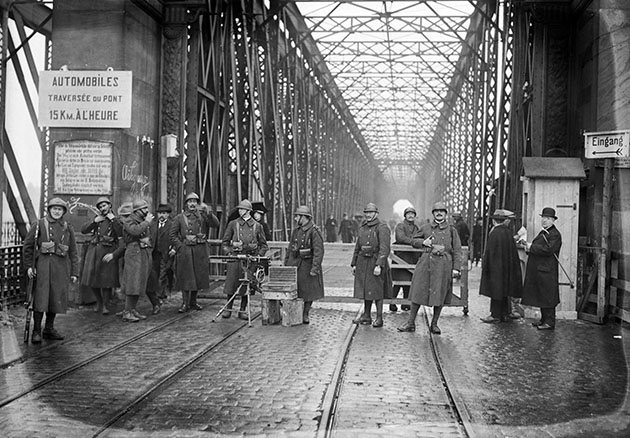
French troops occupying Germany’s chemical warfare centre: outposts at the exit from the bridge outside Mannheim, March 1919. Photograph published in the Excelsior daily magazine on Sunday 5 March 1919.
© © Excelsior-L’Équipe/Roger-Viollet
Author
Jacques Frémeaux - Professor emeritus at the University of Paris-Sorbonne (Paris-IV), member of the French Overseas Scientific Academy and member emeritus of the Institut Universitaire de France.
Read more
Bibliography
Les colonies dans la Grande Guerre : combats et épreuves des peuples d’outre-mer, Jacques Frémeaux, Editions 14-18, 2006.
Photo gallery (ECPAD)
The armistice of 1918 in the ECPAD archives
1919: The days after war and the victory parade
Videos (ECPAD)
1919: The days after war and the victory parade
Victory Celebrations, 14 July 1919, in Paris. 1/3
Victory Celebrations, 14 July 1919, in Paris. 2/3
Articles of the review
-
The event
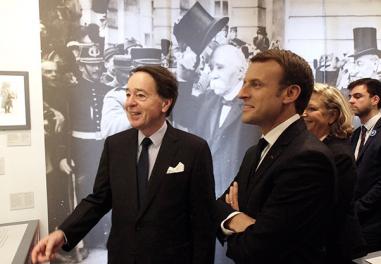
2018: the Year of Clemenceau
Read more -
The figure
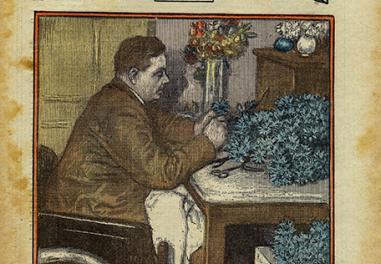
To Bleuets, citizens!
The centenary of the year 1918 will give many the occasion to don the “Bleuet de France” which came about in the wake of the First World War. A symbol of remembrance and solidarity, the bleuet or cornflower still fulfils the same vocation today and provides moral support for the injured an...Read more -
The interview
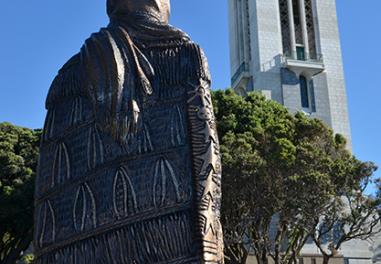
Bridget Gee
Bridget Gee is head of external relations at the New Zealand embassy in Paris. In her role, she is in charge of planning Franco-New-Zealand commemorations, especially the 2018 inauguration of the French monument in Wellington.
Read more
Related articles
- 11 November: a day of remembrance
- La Paix
- La Victoire... et ensuite ?
- Le Soldat Inconnu
- Au nom de tous les autres : l'Internationale des Soldats inconnus (1916-2004)
- Veuves et orphelins de la Première Guerre mondiale
- La gestion individuelle des morts
- Cadillac - Les Oubliés
- Les prisonniers de guerre français 1914-1918
- 1919, le logement des sinistrés à leur retour sur les zones du front en Picardie
- The French colonial army, 1914-18
- North-African soldiers. 1914-1918
- History of the Senegalese tirailleurs
- France and Madagascar
- New Caledonia in the two World Wars
- L'émancipation des femmes dans la Grande Guerre
- La naissance des associations d'anciens combattants
- First world war places of remembrance

